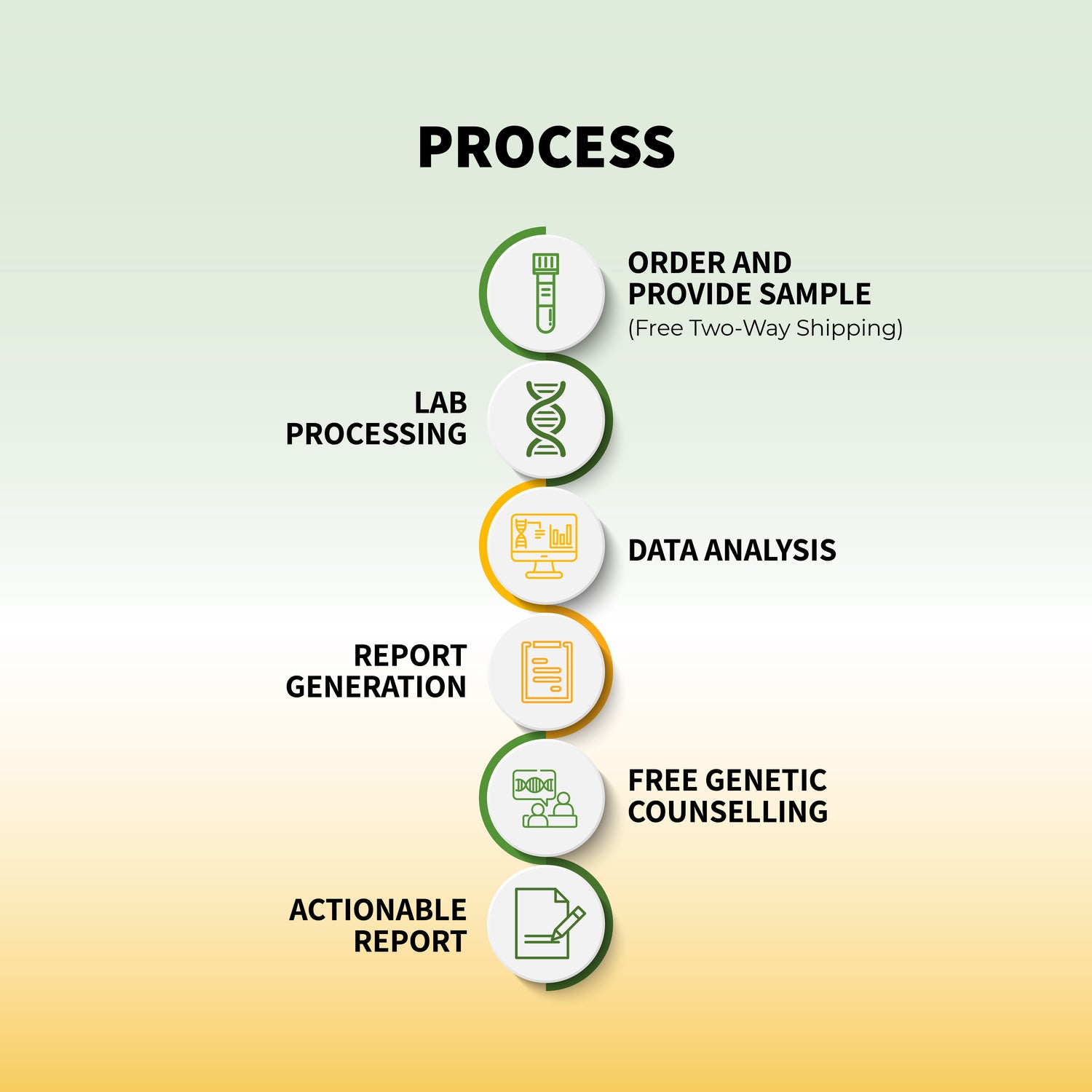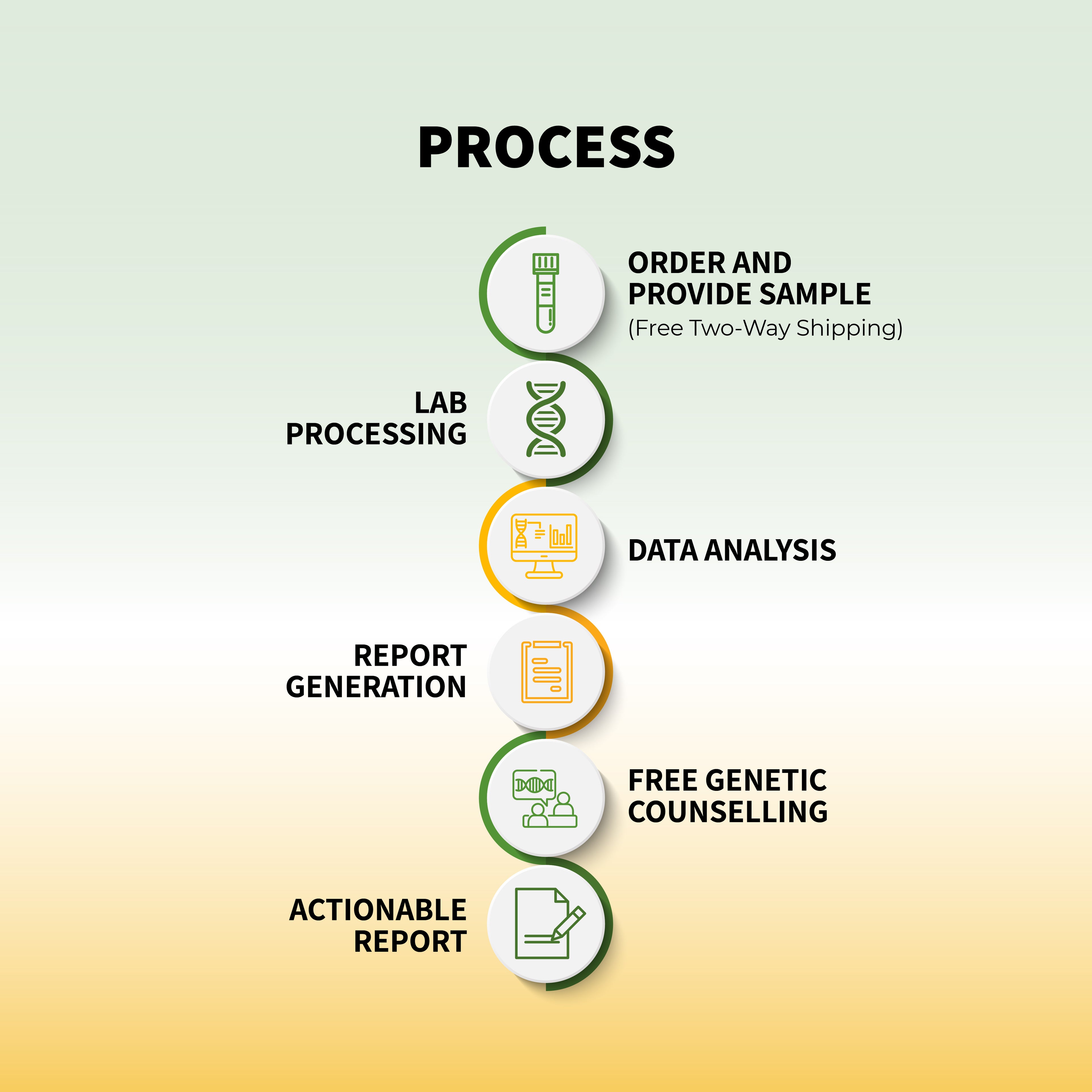World Environment Day, observed every year on June 5th, serves as a vital reminder of our duty to protect the environment and promote sustainable living. It provides a platform to raise awareness about critical environmental issues and encourage actions that benefit both our planet and our health. This year, let’s explore the connection between environmental health and genetic testing, and how understanding our genetic makeup can help us better manage environmental challenges.
The Importance of Environmental Health
Environmental health involves the study and management of environmental factors that affect human health. These factors include air and water quality, exposure to chemicals and pollutants, and access to safe, nutritious food. Poor environmental conditions can lead to various health issues, ranging from respiratory diseases to cancer, and can also worsen existing health problems.
Key Environmental Health Issues
-
Air Pollution:
- Long-term exposure to polluted air can cause respiratory and cardiovascular diseases.
- Urban areas are particularly vulnerable to smog and particulate matter.
-
Water Contamination:
- Polluted water sources can contain harmful pathogens and toxic substances.
- Contaminated water is a major cause of gastrointestinal diseases and other health issues.
-
Chemical Exposure:
- Chemicals in pesticides, industrial waste, and household products can disrupt endocrine functions.
- Prolonged exposure to toxic chemicals is linked to cancers and reproductive health problems.
-
Climate Change:
- Rising temperatures and extreme weather events can worsen health issues.
- Increased prevalence of vector-borne diseases due to changing habitats of insects like mosquitoes.
Genetic Testing: A Tool for Personalized Health
Genetic testing involves analyzing an individual's DNA to identify genetic variations that can influence health and disease. This technology has become a vital tool in personalized medicine, allowing for tailored health strategies based on genetic predispositions. Genetic testing can reveal susceptibilities to certain diseases, how one might respond to specific medications, and the potential impacts of environmental factors on one's health.
Benefits of Genetic Testing
-
Risk Assessment:
- Identifying genetic predispositions to diseases like cancer, heart disease, and diabetes.
- Enabling proactive measures to mitigate risks.
-
Personalized Medicine:
- Customizing treatment plans based on genetic makeup.
- Enhancing the effectiveness of medications and reducing adverse reactions.
-
Lifestyle Recommendations:
- Offering insights into optimal diet, exercise, and lifestyle choices.
- Helping individuals make informed decisions to improve their overall health.
The Interplay Between Environment and Genetics
The relationship between genetics and the environment is complex and multifaceted. While our genes provide the blueprint for our health, environmental factors can significantly influence how these genes are expressed. This interplay can affect our susceptibility to diseases and our overall well-being.
Gene-Environment Interaction
-
Epigenetics:
- Environmental factors can cause changes in gene expression without altering the DNA sequence.
- Epigenetic modifications can be influenced by diet, stress, toxins, and other environmental factors.
-
Susceptibility to Environmental Toxins:
- Genetic variations can affect how individuals metabolize and respond to environmental toxins.
- Some people may be more vulnerable to pollutants and chemicals due to their genetic makeup.
-
Nutrition and Metabolism:
- Genes can influence how efficiently our bodies process nutrients and detoxify harmful substances.
- Personalized nutrition plans can optimize health based on genetic profiles.
Genetic Testing for Environmental Health
Understanding one's genetic predispositions can empower individuals to take proactive steps to mitigate environmental risks. Genetic testing can provide valuable insights into how our bodies interact with the environment and guide us in making healthier choices.
Key Applications
-
Identifying Vulnerabilities:
- Genetic tests can pinpoint specific susceptibilities to environmental toxins and pollutants.
- Personalized strategies can be developed to avoid or minimize exposure.
-
Tailoring Nutrition:
- Genetic insights can inform dietary choices that support detoxification and overall health.
- Nutrigenomics focuses on how food interacts with our genes and influences health.
-
Monitoring Health:
- Regular genetic testing can help track changes in gene expression related to environmental exposures.
- Early detection of health issues can lead to timely interventions.
This World Environment Day, let’s recognize the profound connection between our environment and our genetic health. By understanding our genetic predispositions and taking proactive measures to mitigate environmental risks, we can pave the way for a healthier future. MapmyGenome is here to guide you on this journey, offering the tools and insights you need to make informed decisions about your health.
Embrace the power of genetic testing and environmental awareness to achieve a healthier, more sustainable lifestyle. Together, we can protect our planet and our well-being for generations to come.
Celebrate World Environment Day by Taking Action for Your Health and the Planet! 🌍💚














